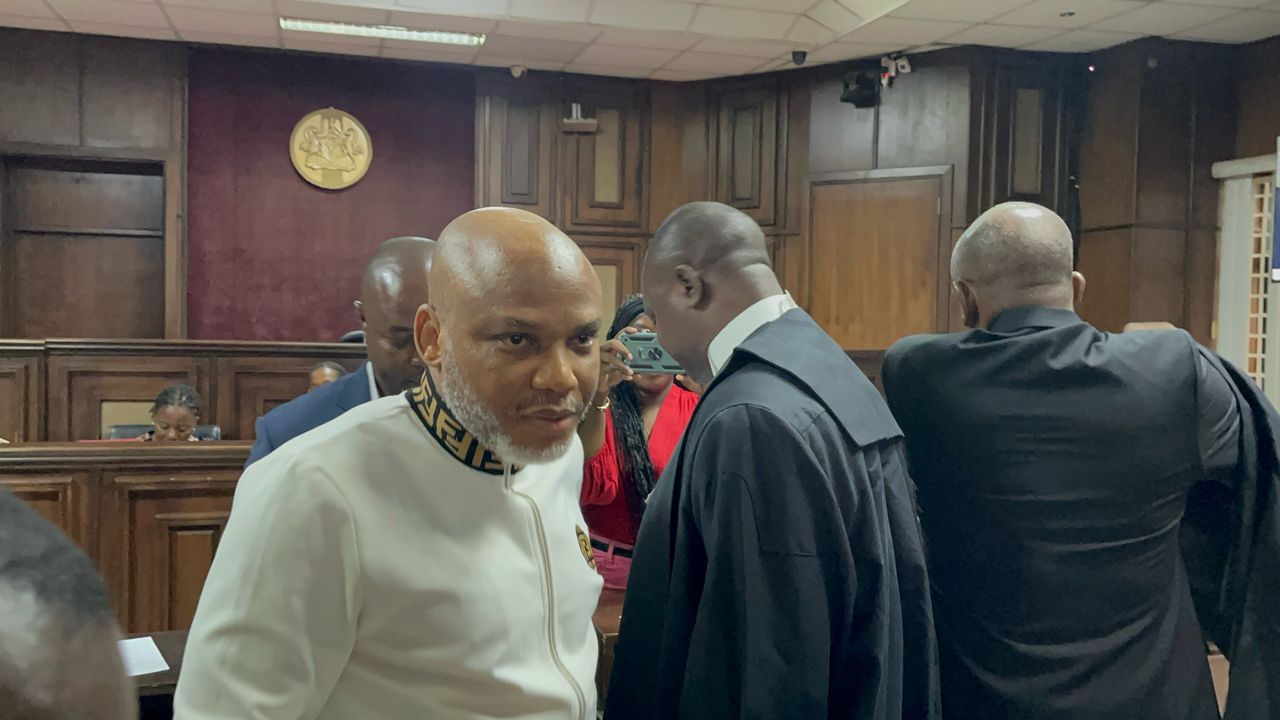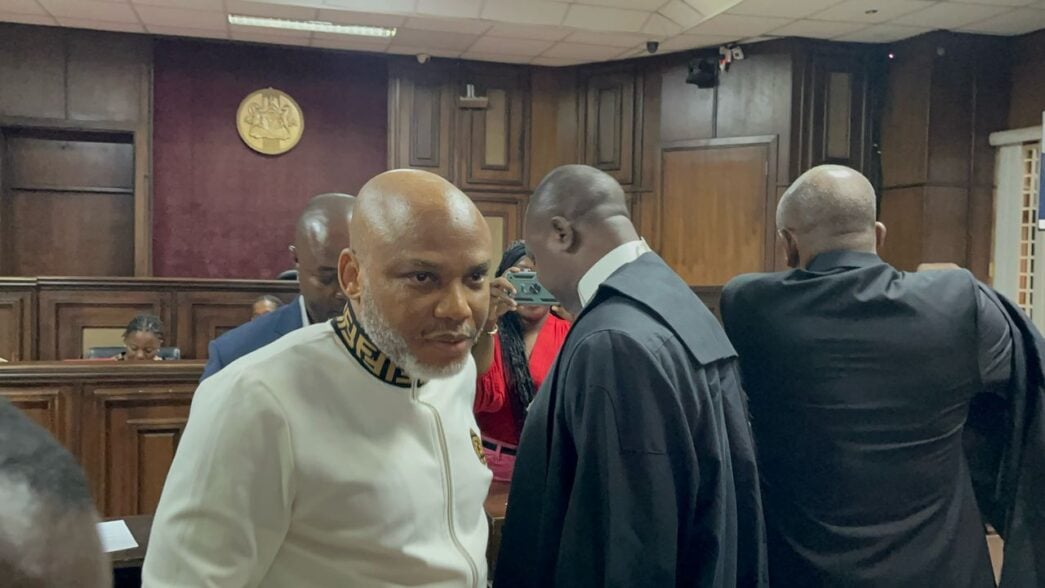BY LEKAN OLAYIWOLA
Nnamdi Kanu’s verdict closed a decade of legal suspense that held Nigeria in suspended animation, but simultaneously opened an anxious political space, forcing the nation to confront what must come next. With the courtroom no longer a holding bay for unresolved tensions, deferred questions on constitutionality, political mistrust, security dilemmas, identity wounds, and regional resentments have returned to the table.
The state must navigate the country’s political and social terrain before it fractures under questions of legitimacy. In the Southeast, calls for dialogue resonate with urgency, yet the contours of negotiation remain uncertain. Within government corridors, deliberation tempers response, reflecting both caution and calculation, while civil society persists in asserting its claims to consultation and influence.
Legitimacy and Structural Tensions
Advertisement
Questions of constitutional fidelity, civic trust, and the management of dissent intersect with historical grievances, identity-based claims, and regional disparities. The state must now exercise power in ways that maintain order while reinforcing legitimacy by its capacity to protect rights, sustain inclusive governance, and manage conflict without deepening historical and social fractures.
These tensions cannot be addressed through security measures alone. They require political dialogue, community engagement, and mechanisms that heal long-standing identity and historical wounds. Legal frameworks gain significance only when anchored in institutional integrity and public confidence in state authority. Recognising these intersecting tensions is essential before charting the pathways toward stability and reconciliation.
Mapping Nigeria’s Agitation Landscape
Advertisement
Since 1999, Nigeria’s existential threats have pivoted between redistribution and recognition in different parts of the nation. Some have been resource-based; some were driven at first by religion, which later mutated into ongoing multidimensional insecurity; some challenged corruption, governance failures, and democratic decay; while others were rooted in identity and the issue of mutual co-existence.
Negotiations and amnesty offered a lifeline for the resource problem; persuasion, and in some instances, suppression have postponed the governance deficit while reforms are managed. But sadly, the recognition dilemma (bordering on religion and ethnicity) lingers in almost intractable ways both in the north and south of the country. Kanu’s case falls in the latter category, which explains why it defies simplistic solutions.
The Structure of Mobilisation
Kanu’s case underscored the difference between personality movements and identity movements. Where resistance is personality-driven, once the individual is removed, the movement loses momentum, especially for lack of a long-standing historical narrative, deep diaspora financing, parallel civic institutions and a symbolic attachment to national trauma.
Advertisement
But when an identity-based mass movement draws legitimacy from the memory of an internecine grievance, the narrative of marginalisation, intergenerational trauma, cultural symbolism, diaspora amplification, and a story larger than any individual, the problem becomes convoluted. A conviction or release of the leader neither dissolves the movement nor guarantees de-escalation. Negotiation with him does not control splinter groups. Here lies the uniqueness of this case.
The Fog Surrounding the Case
No analysis of the Kanu issue is complete without acknowledging the violence associated fairly or unfairly with the IPOB/ESN ecosystem. A trinity of complications includes (i) State accusations of attacks on security personnel, INEC offices, and public institutions. (ii) IPOB’s repeated denials that it neither ordered nor sanctioned violence, blaming security agents or criminal infiltrators, and (iii) the proliferation of splinter and criminal groups — “Unknown gunmen” beyond any central command.
This web of ambiguity created a diffused, unpredictable threat to the State while communities suffered the consequences of both state and non-state violence. This complexity made negotiation harder.
Advertisement
Nigeria has never fully processed its major post-independence conflict, which carries political scars, emotional residues, narratives of betrayal, memories of suffering and mortality, and a defensive reflex around territorial integrity. For many within Nigeria’s strategic and military establishment, that episode is not history, but trauma. And trauma, left unprocessed, becomes policy.
The Legal and International Entanglement
Advertisement
Even if one stripped away the politics, identity, and history, the legal controversy of Kanu’s case would still distinguish it. Human rights organisations, international lawyers, and sections of the Nigerian bar agree that Kanu’s return to Nigeria did not follow transparent extradition protocols, and this raises difficult questions.
Critics also argue that the charges against Kanu relied on provisions of a pre-amendment terrorism statute, retroactive interpretations, vague definitions around “incitement,” and evidence derived from contentious broadcasts. Legal controversies of this magnitude make the case both more fragile and more combustible.
Advertisement
Why Couldn’t Kanu’s Case Be Resolved like Others?
Because it is not like others, the Kanu dilemma is not merely a protest, security, ethnic, secessionist or legal issue. It is all of them at the same time. And this convergence makes it uniquely resistant to simple solutions.
Advertisement
A Sowore-style release does not address the identity wounds. A Niger Delta-style amnesty does not address the constitutional implications. An Igboho-style diplomatic exit does not address the violence question. A political pardon does not address the legal controversies. The crisis is a multi-layered conflict requiring a multi-track response.
Kanu Can Still Be Resolved —But Only Creatively
The path forward cannot be linear. It must be holistic facing (i) a judicial reckoning where Nigeria confronts the legality of the rendition, validity of the statutes used, and the integrity of the trial process. Without this, any outcome may lose legitimacy.
(ii) Political dialogue: The government must engage Southeast stakeholders on inclusion, development, security overreach, and inter-ethnic suspicion. Without this, grievances continue to fester. (iii) Security demobilisation: Violent splinters must be identified, disaggregated, and offered structured off-ramps.
(iv) Historical confrontation: Nigeria must finally speak honestly about the post-independence debacle. Silence has cost the nation too much. (v) Narrative reset: Dissent must be separated from violence. Rights must be separated from threats. Ethnic identity must not be demonised. No one track can resolve this alone. It requires a national reimagining.
The Burden and Policy takeaway
The Southeast waits for sincerity, the nation longs for stability, and the world watches to see whether Nigeria can reconcile unity with dissent without betraying its democratic conscience. The future of Nigeria will hinge on the wisdom with which the state confronts what follows. This burden is immense, yet it is also a rare chance to re‑imagine justice as fearless of scrutiny, politics as open to dialogue, and nationhood as honest about its wounds.
Nigeria must walk many paths at once, safeguarding judicial integrity, honouring constitutional and international commitments, engaging in genuine political dialogue, disarming violence, and confronting the ghosts of history. Only by weaving these strands together can the Kanu moment cease to be a destabilising shock and instead become a blueprint for how a diverse federation manages dissent without losing its soul.
Lekan Olayiwola is a peace & conflict researcher/policy analyst. He can be reached via [email protected]
Views expressed by contributors are strictly personal and not of TheCable.

